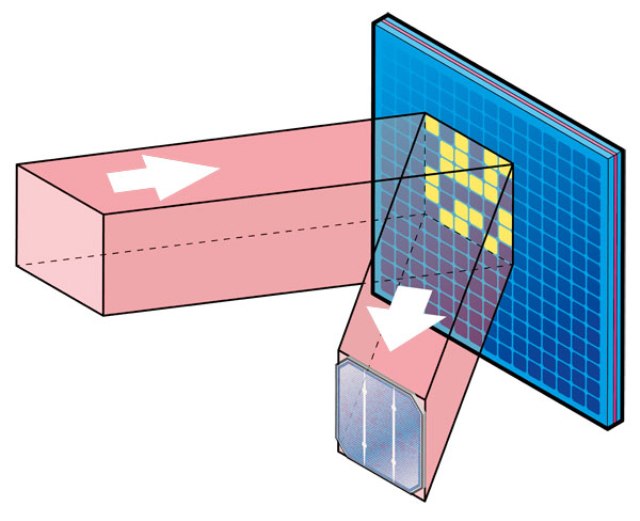 Patterns of light are projected onto PV cells to measure their response
Patterns of light are projected onto PV cells to measure their response
National Physical Laboratory (NPL) researchers have designed a new technique for identifying the defective areas in photovoltaic (PV) cells with the help of ‘compressed sensing. PV cells or solar panels are being widely employed with the increasing demand for sustainable solutions and reducing costs. Effective characterization of PV cells is a critical parameter in the quality control process during the manufacture of these cells.
Traditional testing method involves row-wise scanning of the PV cells using a laser beam followed by the measurement of current generated with respect to light at different points. The testing process may also involve identification of cells' performance, which is highly time-consuming. However, in the new technique, a digital micromirror device is used to project light patterns onto the PV cells. Following this, a compressed sensing method is used to evaluate the current generated by the cells with respect to the light for the identification of malfunctioning areas.
Compressed sensing is the signal processing method used for reconstructing images based on the information, by exploiting real-world images. Considering sparse defects, this method can sense abnormalities in the solar cells using less measurements when compared to the conventional raster scanning technique, and without requiring moving components.
A number of large companies have already come forward to adopt this new technology for different scanning applications. The NPL team has patented this method recently, and is at the verge of implementing the technique.
References